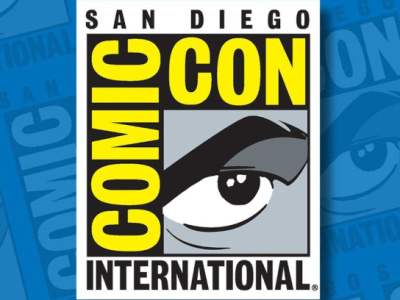 Rolling for Initiative is a weekly column by Scott Thorne, PhD, owner of Castle Perilous Games & Books in Carbondale, Illinois and instructor in marketing at Southeast Missouri State University. This week, Thorne continues his discussion of advertising for stores.
Rolling for Initiative is a weekly column by Scott Thorne, PhD, owner of Castle Perilous Games & Books in Carbondale, Illinois and instructor in marketing at Southeast Missouri State University. This week, Thorne continues his discussion of advertising for stores.I started talking about advertising last week and why it’s an important part of your promotional mix. Advertising had traditionally been defined as “any form of paid communication through a mass medium” with television, radio, magazines, newspapers, billboards and transit advertising the usual suspects. The advent of social media has upended that definition as Facebook, Twitter, Foursquare, et. al. allows you to communicate to a mass market with no direct cost i.e. payment to the message channel, to you. You still have indirect costs in terms of time spent on writing and sending out your message but so far Facebook, Twitter, and the rest do not charge the average store a fee for maintaining a page and posting updates. This certainly could change in the future but for the foreseeable future, basic promotion through social media remains free.
Social media is the electronic version of the most effective form of promotion: word of mouth. Word of mouth promotion has several major advantages over other forms of promotion, as well as two major disadvantages (more on both of these next time), which is why organizations still use the traditional forms of paid mass media, newspapers, billboards, etc., because, despite their disadvantages, they still have a couple of major advantages over social media and other forms of promotion.
First the major disadvantages. Paid forms of advertising cost you money. It can cost lots of money if you try to advertise in a larger metropolitan area. At I pointed out last week, it’s wasteful. You communicate with lots of people through advertising. Most of them are not interested in what you have to sell or say. You are paying out good money to talk to lots of people through the media, most of whom, depending on the medium you choose, will ignore your message. Those that hear your message, research shows, tend not to believe it. Messages transmitted through word of mouth are believed much more often. Advertising results are also hard to measure, unless you tie them together with sales promotion, which does allow you to measure the reaction to your message with greater accuracy.
With all that stacked against it, why spend money on advertising? Two main reasons. First, you get control over the message. You get to construct your communication and select the media by which it reaches your audience. You get to tell everyone who sees your flyer, newspaper ad, billboard, television spot or hears your radio ad, exactly what you want them to hear. You can select when you want it to run, where you want it to appear and how often you would like them to hear it. A big problem with word of mouth promotion is best illustrated by the “Telephone” party game. You may have played this before. The first player whispers a phrase to the second player and then the second player whispers what they heard to the third and so forth. Generally, by the time the last player is reached, the phrase bears no relation to the original statement. Since you have fewer layers through which your communication moves, your target market receives your message unfiltered.
The second major advantage advertising has is that it allows you to reach potential customers outside of your current market, customers who might not have ever heard about your store otherwise. Just this past week, we had two customers come in who had never heard of the store, had no idea we existed and were exactly the target market we want to reach. While the store manager conversed with them, it came up they had seen the store’s television commercial and driven a couple of hours to get to the store. While here, they spent several hundred dollars with plans to come back again. Granted, this doesn’t happen every day, or even every week but we hear often enough from new customers that they see our television or newspaper ads, which don’t cost an arm and a leg if you plan your media buy carefully, that they justify our place in our budget. If your promotional budget is extremely tight, an investment in Internet advertising, which can give an incredible bang for your buck or even flyers on car windshield (assuming no laws against that in your municipality) or on local bulletin boards, can prove fruitful in generating awareness of your store.
Summing up, advertising allows to control your message, where it appears and what it says and lets you reach beyond those already familiar with your store. In these times, new customers are always welcome.
The opinions expressed in this column are solely those of the writer, and do not necessarily reflect th views of the editorial staff of ICv2.com.







